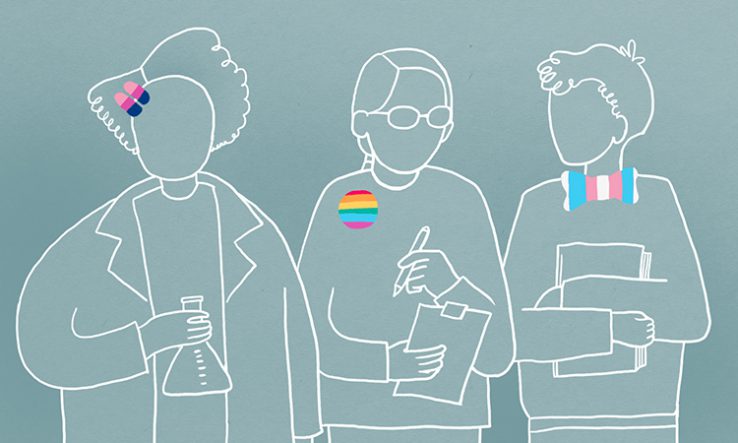
Some of the reforms aim to address “discriminations” faced by the LGBT+ community
Researcher groups have hailed changes to the EU’s funding programme for doctoral education and postdoctoral training, with the family allowance increasing and expected to be available to more researchers.
The European Commission is also planning to use a broader definition of ‘family’ for the allowance to give it more flexibility in recognising LGBT+ couples, Research Professional News understands.
Bigger and more flexible
Researchers who win grants from the Marie Skłodowska-Curie Actions scheme, which in June launched its first calls under Horizon Europe, the EU’s 2021-27 R&D programme, will receive a €660 monthly family allowance to support partners or dependants, if applicable. This is up from €500 under Horizon 2020, the previous R&D programme.
The family allowance will also be made available to researchers whose parental status changes during their project. In Horizon 2020, the allowance for MSCA was based on the family situation at the time of the call deadline.
Research Professional News understands that a more inclusive definition of family is also being adopted, to ensure that researchers in LGBT+ couples can access EU financial support if their relationship is recognised in the country where it was established, even if it is not recognised in the fellow’s home or host country.
A spokesperson for the Commission said it was “deeply committed to addressing the discriminations faced by the LGBTIQ community”, and in particular to “improving the legal protection of ‘rainbow’ families in cross-border situations”.
They said the Commission would propose legislation in 2022 to support the “mutual recognition of parenthood” between EU member states, so that the union and parenthood of same-sex couples that were recognised in one member state could be recognised in another.
Setting standards
The early career researcher group Eurodoc applauded the changes. Outgoing president Giulia Malaguarnera and incoming head Agnieszka Żyra said the reforms addressed a previous “weakness” in the MSCA programme.
“Reconciliation of work and family is a huge problem in academia at large,” they said, adding that the changes would allow MSCA-funded early career researchers “to be treated the same as their peers with family, and set a standard for others’ funding programmes in terms of social benefits”.
A spokesperson for a working group on gender that is part of the Marie Curie Alumni Association, which represents more than 19,000 members in 150 countries, also hailed the move. In some situations, fellows have experienced difficulties in getting their parental rights recognised, they said. “We have seen several cases where national laws have led to discrimination among fellows.”